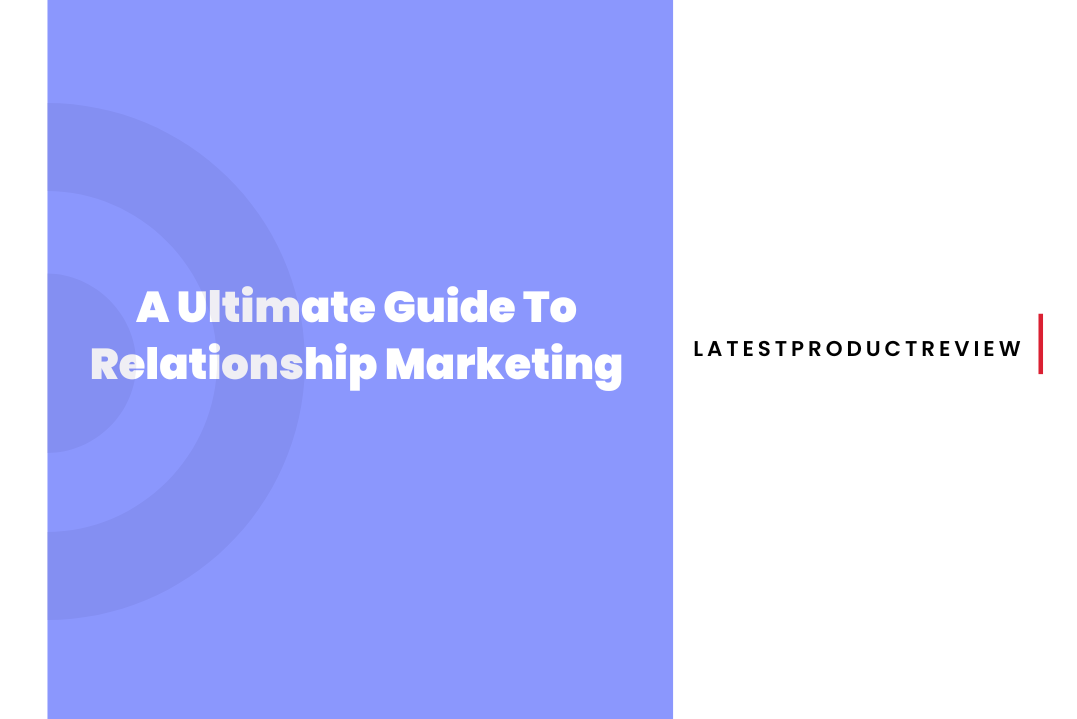Relationship marketing is a form of marketing that focuses on building long-term, mutually beneficial relationships with customers, stakeholders, and other parties.
It involves actively engaging with customers, understanding their needs and preferences, and working to create value for them over the long term. This approach differs from traditional marketing, which tends to focus on short-term transactions and one-off interactions with customers.
One of the key principles of relationship marketing is the idea that it is more cost-effective to retain existing customers than it is to constantly acquire new ones.
This is because it takes less time and resources to sell to someone who is already familiar with your brand and has a positive opinion of it. Additionally, loyal customers are more likely to recommend your products or services to others, which can lead to a virtuous cycle of customer acquisition and retention.
To build strong relationships with customers, businesses may use a variety of tactics, such as providing excellent customer service, offering personalized experiences, and engaging with customers through social media and other channels.
They may also use customer data to better understand the needs and preferences of their audience and to tailor their marketing efforts accordingly.
Why is Relationship Marketing Important?

There are several reasons why relationship marketing is important:
Increased customer loyalty: By building long-term, mutually beneficial relationships with customers, businesses can increase customer loyalty. Loyal customers are more likely to continue doing business with a company and to recommend it to others.
Reduced marketing costs: It is generally more cost-effective to retain existing customers than it is to constantly acquire new ones. Therefore, by focusing on building relationships with customers, businesses can reduce their marketing costs.
Increased customer lifetime value: Loyal customers are likely to make more purchases over their lifetime, which can lead to increased profits for the business.
Improved customer satisfaction: By actively engaging with customers and understanding their needs and preferences, businesses can create a better customer experience, which can lead to improved satisfaction and loyalty.
Competitive advantage: By building strong relationships with customers, businesses can differentiate themselves from their competitors and gain a competitive advantage in the market.
What Are Some Examples Of Relationship Marketing?
Some examples of relationship marketing include:
Personalized experiences: Offering personalized experiences, such as personalized product recommendations or tailored email campaigns, can help build a deeper connection with customers.
Customer loyalty programs: These programs reward customers for their loyalty and encourage them to continue doing business with a company.
Customer service: Providing excellent customer service and being responsive to customer needs and concerns can help build trust and loyalty.
Social media engagement: Engaging with customers through social media platforms, such as responding to comments and reviews, can help build a sense of community and strengthen relationships.
Data-driven marketing: Using customer data to better understand the needs and preferences of customers and tailor marketing efforts accordingly can help businesses build more targeted and personalized relationships.
Why Does Relationship Marketing Work?

There are several reasons why relationship marketing works:
It focuses on building long-term, mutually beneficial relationships: By building relationships with customers that are based on trust, value, and mutual benefit, businesses can create a deeper connection with their audience.
It takes a customer-centric approach: Relationship marketing is all about understanding the needs and preferences of customers and working to create value for them. This customer-centric approach can help businesses create a better customer experience and build loyalty.
It leverages customer data: By using customer data to better understand their audience, businesses can create more targeted and personalized marketing efforts, which can be more effective in building relationships.
It can lead to increased customer loyalty: By building strong relationships with customers, businesses can increase customer loyalty and reduce churn. Loyal customers are more likely to continue doing business with a company and to recommend it to others.
It can differentiate a business from its competitors: By focusing on relationship marketing, businesses can differentiate themselves from their competitors and gain a competitive advantage in the market.
How Can Customer Relationship Marketing Help Your Business?
There are several ways in which customer relationship marketing can help your business:
Increased customer loyalty: By building strong relationships with customers, you can increase customer loyalty, which can lead to increased sales and profits.
Reduced marketing costs: It is generally more cost-effective to retain existing customers than it is to constantly acquire new ones. By focusing on customer relationship marketing, you can reduce your marketing costs.
Improved customer satisfaction: By actively engaging with customers and understanding their needs and preferences, you can create a better customer experience, which can lead to improved satisfaction and loyalty.
Increased customer lifetime value: Loyal customers are likely to make more purchases over their lifetime, which can lead to increased profits for your business.
Competitive advantage: By building strong relationships with customers, you can differentiate your business from your competitors and gain a competitive advantage in the market.
How Can Relationship Marketing Impact Customer Experience?

Relationship marketing can impact customer experience in several ways:
Personalized experiences: By using customer data to create personalized marketing efforts, businesses can create a more tailored and relevant customer experience.
Improved customer service: By actively engaging with customers and being responsive to their needs and concerns, businesses can create a better customer experience and build trust and loyalty.
Community building: By engaging with customers through social media and other channels, businesses can create a sense of community and make customers feel more connected to the brand.
Increased value: By understanding the needs and preferences of customers and working to create value for them, businesses can create a more valuable and satisfying customer experience.
Overall, the goal of relationship marketing is to create a deep, ongoing connection with customers that is built on trust, value, and mutual benefit. By focusing on this type of marketing, businesses can create a better customer experience and build loyalty.
What Is The Difference Between Relationship Marketing And Traditional Marketing?
The main difference between relationship marketing and traditional marketing is the focus of each approach. Relationship marketing focuses on building long-term, mutually beneficial relationships with customers, while traditional marketing tends to focus on short-term transactions and one-off interactions with customers.
Here are some other key differences between relationship marketing and traditional marketing:
Customer-centricity: Relationship marketing is customer-centric, meaning that it focuses on understanding the needs and preferences of customers and creating value for them. Traditional marketing, on the other hand, tends to focus more on the needs and goals of the business.
Time horizon: Relationship marketing focuses on building long-term relationships with customers, while traditional marketing tends to focus on short-term results.
Marketing channels: Relationship marketing often involves using a variety of channels, such as social media, email, and customer service, to engage with customers. Traditional marketing tends to focus more on traditional channels, such as advertising and direct mail.
Customer data: Relationship marketing often involves using customer data to better understand the needs and preferences of customers and tailor marketing efforts accordingly. Traditional marketing tends to rely more on market research and generalizations about target audiences.
Benefits Of Relationship Marketing
Greater customer retention: By building strong relationships with customers, businesses can increase customer retention and reduce churn.
Increased customer loyalty: Loyal customers are more likely to continue doing business with a company and to recommend it to others, which can lead to a virtuous cycle of customer acquisition and retention.
Greater customer insights: By actively engaging with customers and gathering data on their needs and preferences, businesses can gain valuable insights that can inform their marketing and product development efforts.
Increased brand awareness: By building strong relationships with customers, businesses can increase brand awareness and positive brand sentiment.
Increased profitability: By building long-term, mutually beneficial relationships with customers, businesses can increase their profitability through increased sales and reduced marketing costs.
How To Create A Relationship Marketing Strategy

Here are some steps you can take to create a relationship marketing strategy:
Define your target audience: Identify the customers you want to focus on building relationships with. This could be current customers, potential customers, or a combination of both.
Identify your goals: Determine what you hope to achieve through your relationship marketing efforts. This could include increased customer loyalty, reduced marketing costs, or increased sales.
Determine your value proposition: Identify what sets your business apart from your competitors and how you can create value for your customers.
Create a customer journey map: Outline the various touchpoints that customers have with your business, from initial awareness to purchase and beyond. Identify opportunities to build relationships at each stage of the journey.
Choose your marketing channels: Determine which channels will be most effective for building relationships with your target audience. This could include social media, email, customer service, or in-person interactions.
Implement and monitor your strategy: Put your strategy into action and regularly monitor and track your progress to ensure that you are meeting your goals. Adjust your strategy as needed based on your results.
How To Improve Your Relationship Marketing Strategy
There are several ways you can improve your relationship marketing strategy:
Gather customer feedback: Regularly collecting and analyzing customer feedback can help you understand what your customers like and dislike about your business, as well as any areas where you can improve. To find the right software for collecting feedback, you can explore different feedback tools like Featurebase, Canny, or any of their popular alternatives.
Personalize your marketing efforts: Use customer data to create personalized marketing efforts that are relevant and valuable to your audience.
Engage with customers: Regularly engage with customers through social media and other channels to build a sense of community and strengthen relationships.
Provide excellent customer service: Make customer service a top priority and respond promptly to customer needs and concerns.
Offer incentives: Consider offering incentives, such as loyalty programs or special promotions, to encourage customers to continue doing business with your company.
Foster a customer-centric culture: Make customer satisfaction and loyalty a key focus within your company culture, and empower your employees to prioritize the needs of customers.
Other Key Sales Metrics

Here are some other key sales metrics that businesses may track:
Customer acquisition cost (CAC): This is the cost of acquiring a new customer, including marketing and sales expenses.
Customer lifetime value (CLV): This is the estimated total value that a customer will bring to a business over their lifetime.
Churn rate: This is the percentage of customers who stop doing business with a company over a given time period.
Customer satisfaction (CSAT): This is a measure of how satisfied customers are with a company’s products or services.
Net promoter score (NPS): This is a measure of how likely customers are to recommend a company’s products or services to others.
Conversion rate: This is the percentage of website visitors or leads that end up making a purchase.
Average order value (AOV): This is the average amount that customers spend per order.
Retention rate: This is the percentage of customers who continue doing business with a company over a given time period.
Final thought
Relationship marketing is a powerful way for businesses to build long-term, mutually beneficial relationships with customers, stakeholders, and other parties. By focusing on customer needs and preferences and working to create value for them over the long term, businesses can increase customer loyalty, reduce marketing costs, and increase profitability.
To be successful with relationship marketing, businesses should gather customer feedback, personalize their marketing efforts, engage with customers, provide excellent customer service, and foster a customer-centric culture within their organization.
Post List
Are you struggling to keep up with the demands of managing your nail salon business? Are you constantly juggling appointments, inventory, and staff schedules? Look…
Do you want to improve and accelerate the way your business is run? You only need to look at the Kysona M600 software. With its…
Are you looking to enhance the security of your payment processing system? Implementing EMV software is the key. With the rising incidents of credit card…
Ashcroft Technology Academy is a shining example of excellence in education. With a rich history and a commitment to providing students with a well-rounded education,…
Imagine a world where creativity intersects with technology, and innovation flows as efficiently as a well-oiled machine. Welcome to the transformative era of design powered…
Step into the future of home automation with your guide to the Delta Dore Application. Embrace a lifestyle of convenience, security, and sophistication, all from…











